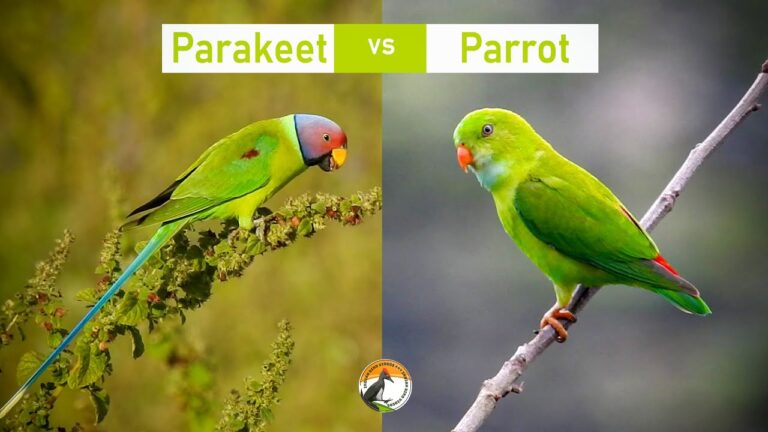Do All Birds Lay Unfertilized Eggs: No Mate No Problem!
Birds are fascinating creatures that are admired for their beautiful feathers, melodic songs, and unique behaviors.
One of the most remarkable things about birds is their ability to lay eggs, a feat that distinguishes them from most other animals. But, do all birds lay unfertilized eggs?
We will explore this question and delve deeper into the world of bird reproduction.
Bird Reproduction: Fertilization and Egg Laying
Before we can answer the question of whether all birds lay unfertilized eggs, we need to understand how bird reproduction works.
Like other animals, birds reproduce by fertilizing an egg with sperm.
However, unlike mammals, birds do not have internal fertilization.
Instead, they have a cloaca, a single opening that serves as the exit for feces, urine, and reproductive fluids.
During mating, the male bird transfers sperm to the female’s cloaca, where it fertilizes the egg as it passes through.
Once fertilized, the egg develops into an embryo and eventually hatches into a chick. However, not all eggs are fertilized.
Fertilized vs. Unfertilized Eggs
As we just mentioned, fertilization occurs when sperm meets an egg, resulting in the development of an embryo.
If an egg is not fertilized, it is considered unfertilized and will not develop into a chick.
Unfertilized eggs can still be laid by female birds, and this is where the answer to our question lies.
Bird List, Fertilized Egg and Mating Time
| Bird Name | Fertilized Egg | Mating Time |
|---|---|---|
| Bald Eagle | Yes | January – April |
| American Robin | Yes | March – July |
| Mallard Duck | Yes | November – April |
| House Sparrow | Yes | Year-round |
| Ostrich | Yes | March – September |
| Chicken | Yes | Year-round |
| Canada Goose | Yes | March – June |
| Wood Duck | Yes | February – June |
| Blue Jay | Yes | March – July |
| Peregrine Falcon | Yes | March – June |
Bird List, Unfertilized Egg and Mating Season
| Bird Name | Unfertilized Egg | Mating Season |
|---|---|---|
| Chicken | Yes | Year-round |
| Quail | Yes | April-September |
| Peacock | Yes | March-June |
| Duck | Yes | November-April |
| Pigeon | Yes | Year-round |
| Canary | Yes | Year-round |
| Finch | Yes | March-May |
| Sparrow | Yes | Year-round |
| Goose | Yes | March-June |
| Swan | Yes | March – May |
Do All Birds Lay Unfertilized Eggs?
In short, the answer is yes. All female birds lay both fertilized and unfertilized eggs.
Even if a female bird mates with a male and produces fertilized eggs, she may still lay unfertilized eggs as well. This is because female birds have a reproductive cycle that continues regardless of whether they mate or not.
In fact, most birds lay more unfertilized eggs than fertilized ones. This is because they need to lay eggs to keep their reproductive systems healthy, and laying unfertilized eggs is a way to do that.
Some species of birds, such as chickens, can even lay eggs without ever mating with a male.
Reasons for Laying Unfertilized Eggs
Now that we know that all birds lay unfertilized eggs, let’s explore why they do it. There are several reasons why female birds lay unfertilized eggs, including:
Hormonal Changes
Female birds go through hormonal changes that cause them to lay eggs, whether they are fertilized or not. These hormonal changes are triggered by the amount of daylight and other environmental factors.
Even if a female bird is not mating, she will still lay eggs as part of her reproductive cycle.
Practice
Laying eggs is a skill that female birds need to learn, just like any other skill. By laying unfertilized eggs, they can practice building nests, incubating eggs, and caring for their young.
This practice helps them become better parents when they do have chicks to care for.
Nutrient Cycling
Laying eggs is a nutrient-intensive process that requires a lot of energy and resources.
By laying unfertilized eggs, female birds can cycle nutrients back into their bodies, ensuring that they have the energy and resources they need for future reproduction.
Final thoughts
All birds lay both fertilized and unfertilized eggs. Female birds lay unfertilized eggs for a variety of reasons, including hormonal changes, practice, and nutrient cycling.
Whether a bird is mating or not, it will still lay eggs as part of its reproductive cycle.
By understanding the complex world of bird reproduction, we can better appreciate these fascinating creatures and the unique ways in which they reproduce.

